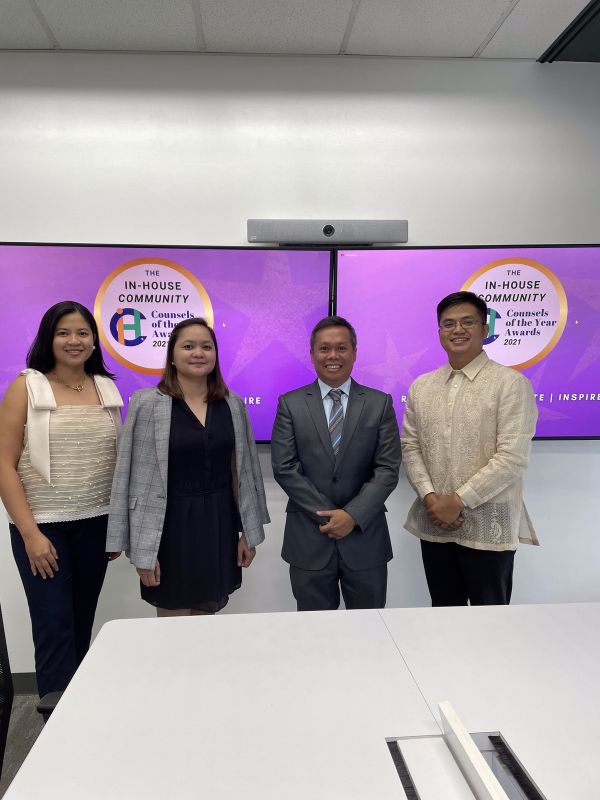July 26, 2023
Q&A with Peter Connor, founder of AlternativelyLegal, and author of the book ‘A New Vision of Corporate Lawyers’. Can you give us an overview of your book and explain how it addresses the concept of human transformation in the field of corporate law? The book makes the case for why corporate lawyers, legal departments and firms should head in a different direction and adopt a new paradigm. It outlines the changing landscape for lawyers, then defines the change imperative, before painting a very clear picture of what the future could look like. That new vision is for lawyers to become businesspeople, not just lawyers; to regularly provide business input and advice, not just legal advice; and to regularly do business work, not just legal work. I refer to such a lawyer as a T-Shaped Lawyer, a form of legal expert business generalist as shown below. That is what I mean by human transformation – fundamentally changing the work that lawyers do and their capabilities to do that new work. Re-imagining your work and reinventing yourself. Why adopt this new vision? The book outlines various reasons but the primary reason is because it turns out that working in the business, not on the business, is the best way to add more value for, and as a result be more valued by, clients. How do I know that? Through my own personal experience working as a lawyer for about 30 years around the world and from the feedback from thousands of lawyers in my workshops who are attracted to this vision but are still in the process of adopting it. The... July 26, 2023
FRENY PATEL The proliferation of the Internet and the critical role of technology players in our daily lives have regulators grappling with how best the digital economy should be regulated against the anti-competitive behaviour of large online platforms. Europe has taken the lead towards ex-ante regulations with the Digital Markets Act (“DMA”), which came into effect a little over a month ago on 2 May 2023. The DMA sets the ground rules on what is acceptable behaviour. The DMA is aimed at reining in ‘Big Tech’ and their alleged abuse of power, but is still a work in progress. Digital platforms, often identified as gatekeepers, have the tendency to adopt a winnertakes-all approach and monetize market data. The idea behind ex-ante regulations is to truncate the time period and intervene before the market is entrenched with one or two players. However, a Singapore-based policy director with a leading multinational digital platform recently voiced concerns and cautioned enforcers in the Asia Pacific region to tailor digital regulations according to local economies, given the far-reaching implementation costs of ex-ante rules and the overarching implications. Unlike the European Commission, most Asian enforcers are still sitting on the fence, deliberating on how digital economies should be regulated and whether ex-ante rules are the solution or even warranted. There is clearly a Europe-Asia great divide on how the digital economy should be regulated. Each inquiry requires more time and by the time authorities complete the investigations, reach a finding, and issue directives, the markets may irreversibly tip in favour of the leaders The debate on the need to relook at antitrust enforcement tools has... July 24, 2023
Taiwan Chips Act Sets Research and Development Spending at NT6 Billion The Ministry of Economic Affairs sets the research and development investment threshold at NT6 billion for companies to qualify for tax incentives under recently approved amendments to the Act for Industrial Innovation – Taiwan’s version of the US Chips and Science Act. The announcement was made on May 2, 2023. That sum was slightly less than the government’s original threshold of between NT5 billion and NT10 billion. However, it is much higher than the average annual R & D expenditure of NT3 billion that the nation’s top 100 companies have committed to over the past few years. Another requirement is that companies need to set aside at least 6% of their revenue for R & D in order to receive the tax incentives. The targets of the government’s initiative are those companies in Taiwan that are strategically important to global supply chains. It is also hoped that the program will encourage more overseas Taiwanese businesses to invest back home. Besides semiconductor firms, the program is also applicable to companies that are capable of developing world-leading or innovative and scalable technology in strategic industries such as 5G, electric vehicles and low Earth Orbit Satellites. The new tax incentives will be in place for seven years, starting this year, and the ministry will start accepting applications next year based on their investments this year. Taiwan Semiconductor Manufacturing Co. is widely considered to be on top of what is likely to be a short list of companies eligible for tax breaks as the world’s biggest contract chipmaker plans to allocate about... July 12, 2023
On how legal teams are evolving and how embracing technology and fostering safe environments build better businesses What Inspired You To Transition From Private Practice To Public Service And Then Back To The Private Sector? How Did Each Experience Shape Your Legal Career? After passing the bar, I started working in a law firm because I thought that was where you learned the practice of law. For about four years, I was fortunate enough to work for a retired Supreme Court Justice. I picked up a lot of learnings, just by watching him argue and examine witnesses in court, drafting pleadings for him, riding in the car and talking about case strategy, oral arguments, and all the hard work that accompanies case preparation. Thereafter, I was appointed as a special prosecutor. My job was investigating and prosecuting erring government officials. Working for the government has its own opportunities and challenges, but I learned so much about the inner workings of the government, how the local and national government agencies creates its budget, advance its policies and laws, and provide public services. Of course, I was also able to see the not-so-good side as well, such as inefficiency and corruption. After five years, I thought I was ready to move on and I transferred to become an in-house counsel. This is where I truly felt I belonged, and I have been in this space for over twelve years now. For me, having a deep understanding of the business is key to being successful in an in-house role, as well as having effective leadership and communication skills. Each of my work... July 12, 2023
A lover of all things tech, Paul Haswell is a highly-regarded TMT focused lawyer, most recently as a Partner with Seyfarth Shaw in Hong Kong. He is also a ‘tech and law’ podcaster, but residents of the city are as likely (or perhaps more so) to know him for his other main passion, music. Haswell has a long running stint spinning the discs on RTHK’s ‘Sunday Escape’ radio programme, and as a club and podcast DJ with Clockenflap, both of which he fulfils with his ‘Crimes Against Pop’ partner, Carolyn Wright. Tim Gilkison recently spoke to Haswell about his journey in law, the importance of mentorship, AI, new music…oh, and time travel! K&L Gates Welcomes Hong Kong Technology Partner Which came first, your love of technology or an interest in the law? Technology, by quite a long way. When I was very young I had three main interests: computers, science fiction, and music. Bear in mind that this was during the very early 1980s, so my interest was being stoked by Star Wars, Star Trek and Doctor Who, the Atari 2600 and then Commodore 64, and whatever I could hear on the radio at the time or find to play on my rather battered hand-me-down record player. I got my first computer (the aforementioned Commodore 64) in about 1984 and spent most of my childhood using it for rudimentary programming, games, and for some reason I even thought that doing my homework using it was exciting. That began my love of computers and technology in general, and ever since then I have been obsessed with new gadgets, the use... July 12, 2023
PRANAT LAOHAPAIROJ The Trade Competition Act B.E. 2560 of Thailand (“Act”) was enacted in 2017 and is the second version of the anti-trust and trade competition law in Thailand. Its predecessor is the Trade Competition Act B.E. 2542, which was enacted in 1999 and saw very little usage due to a lack of necessary supplementary regulations and will of the government and the public to put the law to use. During the 18 years of its existence, the 1999 law only saw action a few times, with all of the cases dropped due to lack of evidence or governing support. The Act is the reincarnation of the 1999 law, with most of the provisions transposed from the 1999 law onto the Act almost verbatim, but with minor differences regarding categorisations and re-classifications of penalties and other minor details. The Act was deemed appropriate to change the competition landscape in Thailand in order to promote more holistic competition within the economy and enhance understanding between different stakeholders and the governing authority. The Act is also intended to extinguish, or at least limit, unnecessary hindrances to trade that had (and to some extent nowadays still have) existed because of historical trade practices and unique cultural conduct. These practices and conduct, such as arrangement, exclusivity, resale price maintenance, unfair poaching, cost imposition, have largely been banned in countries that have enacted their version of anti-trust and trade competition law, and Thailand was deemed ready to follow suit. The Trade Competition Commission of Thailand (“ TCCT ”), which is the governing authority over the Act, was very clear that during the first few... Upcoming Events
Recent Past Events
















